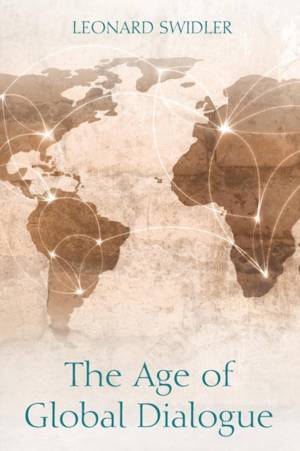
Bedankt voor het vertrouwen het afgelopen jaar! Om jou te bedanken bieden we GRATIS verzending (in België) aan op alles gedurende de hele maand januari.
- Afhalen na 1 uur in een winkel met voorraad
- In januari gratis thuislevering in België
- Ruim aanbod met 7 miljoen producten
Bedankt voor het vertrouwen het afgelopen jaar! Om jou te bedanken bieden we GRATIS verzending (in België) aan op alles gedurende de hele maand januari.
- Afhalen na 1 uur in een winkel met voorraad
- In januari gratis thuislevering in België
- Ruim aanbod met 7 miljoen producten
Zoeken
Omschrijving
Thinking beyond the absolutes Christians and other religious persons increasingly find "deabsolutized" in our modern thought world, Swidler reflects on the ways we humans think about the world and its meaning now that increasingly we notice that there are other ways of understanding the world than the way we grew up in. In this new situation we need to develop a common language we can use together both to appreciate our neighbors and enrich ourselves, what the author calls Ecumenical Esperanto, because it should serve as a common language without replacing any of the living languages of our religious and ideological traditions. Of course, such thinking anew about the world and its meaning must necessarily mean thinking anew about all of our religious beliefs--but this time, in dialogue.
Specificaties
Betrokkenen
- Auteur(s):
- Uitgeverij:
Inhoud
- Aantal bladzijden:
- 428
- Taal:
- Engels
Eigenschappen
- Productcode (EAN):
- 9781498208673
- Verschijningsdatum:
- 8/11/2016
- Uitvoering:
- Paperback
- Formaat:
- Trade paperback (VS)
- Afmetingen:
- 152 mm x 226 mm
- Gewicht:
- 566 g

Alleen bij Standaard Boekhandel
+ 143 punten op je klantenkaart van Standaard Boekhandel
Beoordelingen
We publiceren alleen reviews die voldoen aan de voorwaarden voor reviews. Bekijk onze voorwaarden voor reviews.









